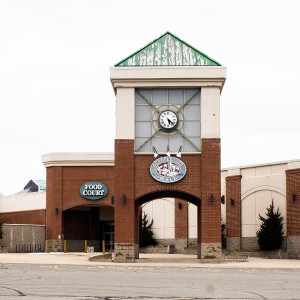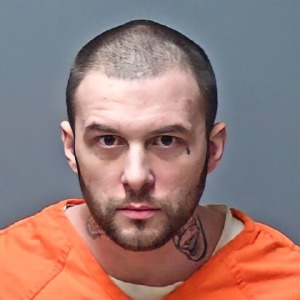Clegg not ruled out in DNA, defense argues evidence was planted
| Published: 10-18-2023 5:18 PM |
Shell casings were planted at the scene of a double homicide in Concord a month after the fatal shootings occurred, Logan Clegg’s defense attorneys said for the second day in a row during his murder trial.
To corroborate the theory, a video and imagery forensic analyst was flown in from Denver, Colorado, to testify that his analysis of a series of images taken near the base of a large tree in the vicinity of the crime scene proved inconsistent.
In August 2022, Jason Latham was given two sets of images, one from May 10, 2022 and one from May 20, 2022 and asked to enhance, enlarge and compare them.
“I was able to identify shell casings in the photos taken on May 20 [2022] but those images were enhanced,” Latham said. “Whatever these objects are [May 10, 2022], they’re not in the same relevant position [as the shell casings] and their shape is not consistent with an ammunition casing.”
As a result of Concord Detective Wade Brown’s testimony on Monday, Latham was asked to look at a second photograph on Wednesday where he testified that a second object of interest identified as a shell casing by police was not consistent with an ammunition casing.
However, Latham added that his examination was rushed, as it was performed early in the morning at a hotel in Concord, ahead of testimony without his professional equipment or within the comfort of his lab.
He said discrepancies between the two images were not isolated to the shell casings. During the first examination of the images in August 2022, he noticed that groupings of sticks were displaced and leaf litter was disturbed.
“This is important because it tells me that something happened here,” Latham said. “These scenes from two different dates are not exactly the same but I can still rely on it as an anchor point.”
Article continues after...
Yesterday's Most Read Articles
 Neighboring landowner objection stalls Steeplegate redevelopment approval
Neighboring landowner objection stalls Steeplegate redevelopment approval
 Lawyers and lawmakers assert the Department of Education is on the verge of violating the law
Lawyers and lawmakers assert the Department of Education is on the verge of violating the law
 Youth rally against New Hampshire’s bill allowing medical aid in dying
Youth rally against New Hampshire’s bill allowing medical aid in dying
 Body of long-missing hiker found, pinned by boulder in Dry River
Body of long-missing hiker found, pinned by boulder in Dry River
 UNH seeks vandal who accused university of genocide in spray-painted message
UNH seeks vandal who accused university of genocide in spray-painted message
 As site testing begins on new middle school site, activists file to put location debate on the ballot
As site testing begins on new middle school site, activists file to put location debate on the ballot
Latham did not draw any conclusions about when, how or why the area was disturbed.
Earlier in the day, a forensic expert tasked with analyzing more than 60 DNA samples collected during the homicide investigation testified that Clegg, could not be ruled out as a contributor to the foreign samples collected from the victims.
Between September 2022 and May 2023, DNA analyst Amber Smith analyzed 63 DNA samples collected from 32 items belonging to the victims, Steve and Wendy Reid, and various items collected from the crime scene, a secondary scene and Clegg.
Though most of the samples came back inconclusive or insufficient due to the quantity and the quality of the DNA samples collected, Smith found that the interior of Steve Reid’s belt buckle, his socks and his left hiking boot contained more than two samples of foreign DNA that could not exclude Clegg.
Experts throughout the duration of the trial have testified that the victims were likely dragged by their feet and ankles from the original crime scene on the Marsh Loop Trail to the recovery zone at the bottom of a hill. The items and areas tested for DNA were probable areas that the killer could have touched when moving the victims.
“In December 2022, we had a known sample from Clegg that had been submitted for comparison and when we ran the samples comparing Clegg to those samples where foreign DNA was found, Clegg could not be ruled out,” Smith explained.
In two of the samples, there was limited support that Clegg was not a contributor while on one of the samples, there was moderate support that Clegg was not a contributor meaning that the quantity of foreign DNA collected from Steve Reid’s left hiking boot and sock was more of a match to Clegg than the foreign DNA collected from the interior of his belt buckle.
Results were inconclusive on Steve Reid’s right hiking boot, sock, gray jacket, sweatshirt, jeans, hat and fingernail clippings and on Wendy Reid’s hiking boots, socks, pants, jacket, shirt and fingernail clipping, Smith testified.
The Reids were fatally shot while walking along the Marsh Loop Trail in April 2022. Their bodies were recovered three days later more than 30-yards off the trail in a natural depression, covered by leaves, sticks and other debris. Police spent six months investigation their deaths before arresting Clegg in Vermont in October.
The defense has repeatedly argued that he fled Concord because of his criminal past and did want to be discovered by police.
Clegg, 27, is facing four charges of second-degree murder, four charges of falsifying physical evidence and one count of being a felon in possession of a firearm, felonies. If found guilty, he faces life in prison. He has remained held without bail in the Merrimack County House of Corrections in Boscawen since his arrest in October.
The Reids were known for their years of humanitarian work around the world and had moved back to Concord to retire. They were outdoor enthusiasts who frequently walked the Broken Ground trails, family and friends said.
Latham will continue his testimony on Thursday. Jurors are expected to start deliberations by the end of the week.







 For the first time, education commissioner speaks publicly about minimum standards revision, but he faces skepticism
For the first time, education commissioner speaks publicly about minimum standards revision, but he faces skepticism Adam Montgomery sentenced to minimum 56 years on murder charges in young daughter’s death
Adam Montgomery sentenced to minimum 56 years on murder charges in young daughter’s death
